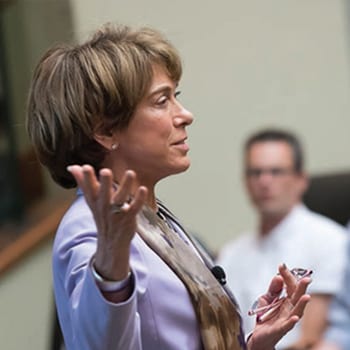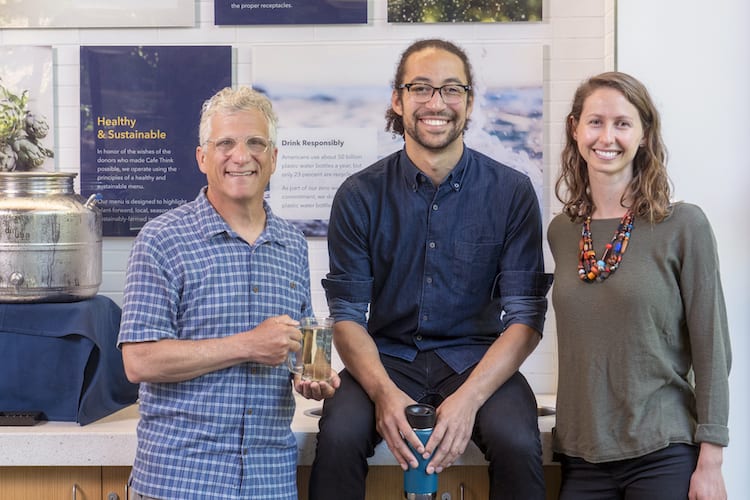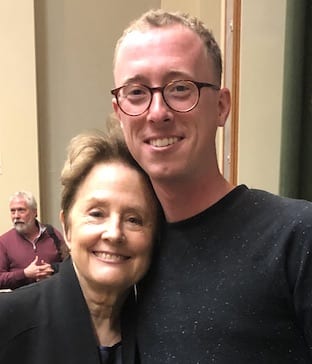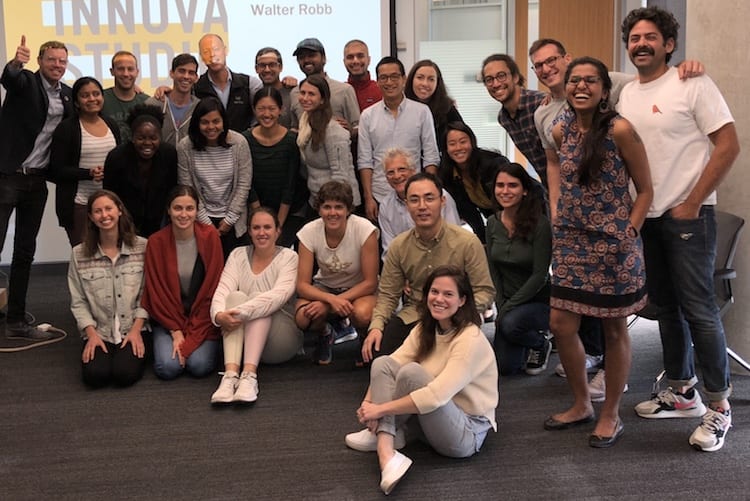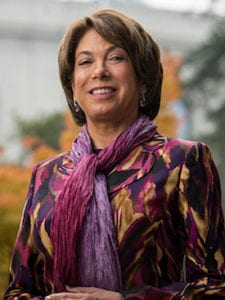After the coronavirus outbreak shuttered hundreds of small businesses in Oakland in March, Shan Ouyang joined a group of Berkeley Haas MBA students who hit the phones to help owners navigate financial survival.

Failing to connect with the first four owners on her list, Ouyang, MBA 20, finally reached a hardware store owner. She spent an hour, mostly listening. “He was just closing the store and he wanted to discuss his difficulties, how much his revenue was down,” said Ouyang, who with 30 MBA students is volunteering through a program launched by the Sustainable and Impact Finance (SAIF) initiative at Berkeley Haas with the City of Oakland.
The program aims to assist hundreds of small business owners who face language, technology, or income barriers to help them access federal relief funds including Small Business Administration (SBA) loans, the SBA’s Paycheck Protection Programs, and unemployment insurance.
The students have split into four teams contacting small business owners working in partnership with District 6 in East Oakland, (the district of Oakland Council member Loren Taylor, MBA 05), the Black Cultural Zone and the Black Economy Rapid Response Network, the Greenlining Institute, and the Chinatown Chamber of Commerce.
“Stepping up in a tangible way”
Before starting their work, all of the MBA volunteers participated in an April 11 training with the City of Oakland. Marisa Raya, a senior economic analyst for special projects with the city, who has collected data since the start of the business closings, gave some of the business owners the heads up that the Haas students would be calling.
Students who speak Mandarin, Cantonese, Spanish, and other languages were matched with business owners in need of language support.
“It’s been inspiring to see the MBAs step up and take the initiative in a tangible way,” said Jessie Tang, MBA 20 and project co-lead, whose mother, an immigrant from China, ran a small business when Tang was younger. “The biggest challenge we’ve had is getting people to pick up (the phone).”

When they do get an owner on the line, Kat Baird, program director for SAIF, said the students are using their business school background coupled with the city’s training to inform and answer questions.
While phone banking may seem old fashioned, Baird said it’s the best way to reach people right now who may not have Internet access or be receiving the most updated information about loans and federal aid in their native language.
“Many of the business owners are confused about the programs available to them and may have given up after they got refused by one program,” said Baird, who is spearheading the program for Haas through SAIF, which is part of the Institute for Business & Social Impact at Haas. “These programs are developing every day and we want the owners to know that these programs exist.”
“A very human conversation”
Tang said the first two businesses she reached were a fortune cookie factory and a funeral home. The funeral home owner surprised her, she said, by asking about her well-being, instead of letting her ask him how he was doing.
“We’re just here to have a very human conversation,” she said. “In training, they talked about empathic listening and to provide resources that they may not know about. The challenge right now is there’s so much uncertainty.”
We’re just here to have a very human conversation.
Ouyang, a native of China who speaks both Cantonese and Mandarin, said she’s called 24 owners so far, mostly restaurants and small grocers in Chinatown. The hardest part for many, she said, is not knowing when they can reopen. “They’re just waiting,” she said. When students get legal questions they can’t answer, they refer business owners to a Berkeley Law program that matches small business owners with Berkeley Law students who will help them navigate the Coronavirus Aid, Relief, and Economic Security (CARES) Act.
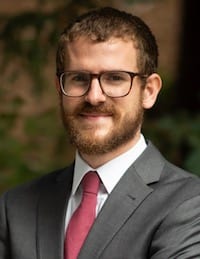
Tang said it’s perhaps most difficult when there’s little she can do to help an owner, like a kettle corn business owner she spoke with who had no website. She suggested maybe selling the kettle corn online, but he told her that the business isn’t set up for manufacturing and shipping. “There’s nothing you can do right now,” he told her.
Dalton Guthrie, MBA 20, who is making calls to businesses in the Black Cultural Zone, said the volunteering experience led him to apply for a contract job with the federal Small Business Administration (SBA), administering disaster loans.
Guthrie, who enrolled in the student-led Berkeley Haas MBA course Dialogues on Race this semester and researched ways that race influences the distribution of community resources, said despite race-conscious initiatives at the local level, he’s witnessing the negative impact of insufficient federal policies in real time in Oakland.
“A lot of businesses with the social connections, the privilege, and the financial literacy have so much of an edge up,” he said. “When you have a pot of money, the people who are going to get there first aren’t the people who are going to need it the most.”
When you have a pot of money, the people who are going to get there first aren’t the people who are going to need it the most.
Still, Baird said that a meeting this week with community partners brought some hopeful news.
“Despite all the problems with federal programs the businesses we’re working with are starting to get funds, access to loans and to see some support come through,” she said.

